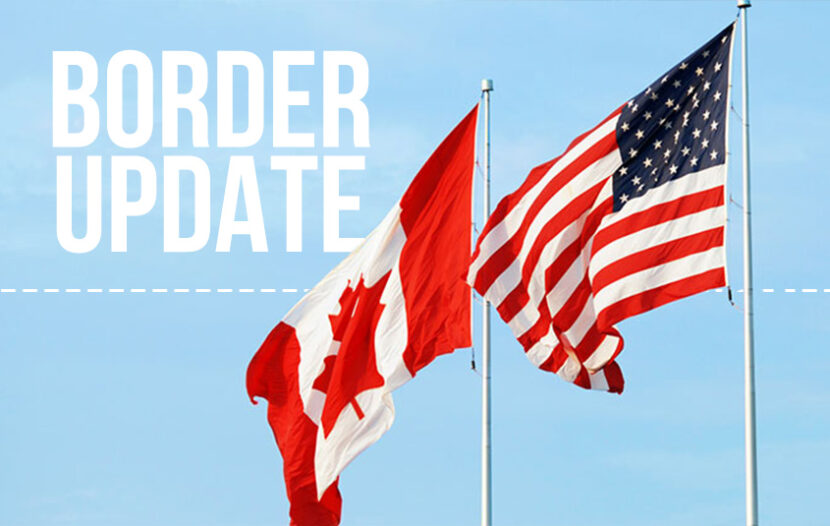TORONTO — The U.S. is keeping its border closed to Canadians until at least Aug. 21, 2021.
A Federal Register Notice, filed today, includes this statement from the Department of Homeland Security: “Given the outbreak and continued transmission and spread of COVID-19 within the United States and globally, the Secretary has determined that the risk of continued transmission and spread of the virus associated with COVID-19 between the United States and Canada poses an ongoing ‘specific threat to human life or national interests.”
The extension of the closure on the U.S. doesn’t align with Canada’s announcement, made July 19 by the federal government, that Canada’s border will reopen to fully vaccinated U.S. travellers effective Aug. 9, 2021. Fully vaccinated international travellers are welcome back effective Sept. 7, 2021.
The border has been closed since March 2020, at the outbreak of the pandemic.
Canada’s eased travel restrictions are good news for Canada tourism, and signal that Canada is on the right track to eventually eliminate all travel restrictions.
However the Canadian travel industry – with its vested industry in outbound travel – had been hoping that the U.S. border would open to Canadian travellers sooner rather than later.
Says ACTA President Wendy Paradis: “ACTA is disappointed that the United States has decided to continue its land border closure until August 21, even to fully vaccinated Canadians. American leaders across political parties have called for months for Canada to open its border. And yet, despite Canadians having a higher vaccination rate and substantially lower transmission of COVID-19, they have refused to reciprocate and follow a science-based plan to safely open their border and support traveller mobility and an ailing travel and tourism sector.”
2 NEIGHBOURS, 2 BORDERS TO CONSIDER
The U.S. is also extending its border closure with Mexico, also to Aug. 21, 2021.
Observers are speculating that one reason the U.S. hasn’t yet reopened its side of the Canada-U.S. border is because it could ruffle political feathers in Mexico if that border isn’t reopened at the same time.
Allowing travel to resume at only one of America’s two shared borders could be seen as playing favourites between the country’s two closest neighbours, some say.
Even taking that into consideration, the news that the U.S. is holding the line on the border closure, in the wake of Canada’s eased border policy announcement, has taken some political watchers by surprise.
However Prime Minister Trudeau offered a rare acknowledgment yesterday that the approaches taken by the two countries have been much more “asymmetrical” than most people seem to realize.
While crossing the border by land for non-essential purposes has been largely prohibited in both directions for the duration of the COVID-19 crisis, Canadians – vaccinated or otherwise – were never forbidden from flying to the U.S. for whatever reason, Trudeau said.
“The asymmetry in the relationship has always been there, but that hasn’t prevented us from working very, very closely to align ourselves,” he told a news conference in Hamilton, ON.
“They will follow their science, they will make their own decisions, and we will work with them. But Canada is not going to any more dictate what the U.S. should be doing around its border policy than we would accept the U.S. to dictate to us around our border policy,” said Trudeau.
Laurie Trautman, director of the Border Policy Research Institute at Western Washington University in Bellingham, WA, says border authorities in Canada and the U.S. will have to figure out a way to process vaccinated and unvaccinated travellers separately, such as a variation on the Nexus system, which allows eligible, pre-cleared travellers to cross the border more quickly.
“I do think that that’s being looked at,” she said. “Not every border crossing’s going to have necessarily the infrastructure or the physical capability to do something like that. But at the really busy ones, there is the option for that.”
With file from The Canadian Press

